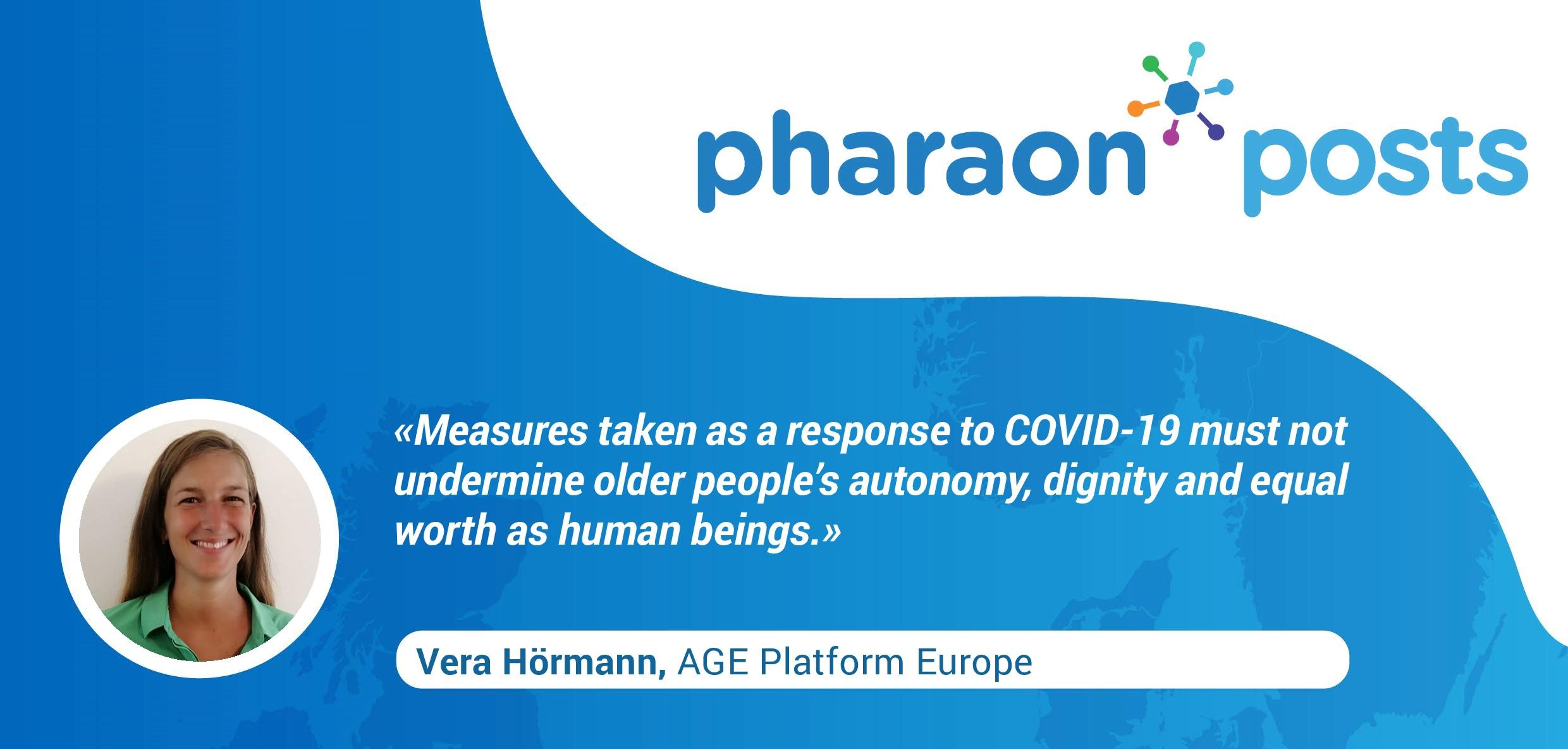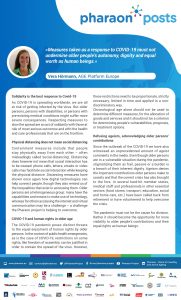
23 Jul Pharaon Posts! Vera Hörmann, Leader Pharaon dissemination
 Solidarity is the best response to Covid-19
Solidarity is the best response to Covid-19
As COVID-19 is spreading worldwide, we are all at risk of getting infected by the virus. But older persons, persons with disabilities, or persons with pre-existing medical conditions might suffer more severe consequences. Respecting measures to slow the spread are an act of solidarity with those at risk of most serious outcomes and with the health and care professionals that are on the frontline.
Physical distancing does not mean social distancing
Containment measures include that people stay physically away from each other – often misleadingly called ‘social distancing’. Distancing does however not mean that social interaction has to be ceased: phone calls, letters, emails or video calls may facilitate social interaction while keeping the physical distance. Distancing measures have shown once again how digital technologies can help connect people, though they also remind us of the inequalities that exist in accessing them. Older persons are a heterogeneous group: many have the capabilities and means to make use of technology, whereas for others accessing the internet and virtual communication may be a challenge – a challenge the Pharaon project is helping to overcome.
COVID-19 and human rights in older age
The COVID-19 pandemic poses distinct threats to the equal enjoyment of human rights by older persons. In the context of public health emergencies, as is the case of COVID-19, restrictions on some rights, like freedom of assembly, can be justified in order to contain the spread of the virus. However, these restrictions need to be proportionate, strictly necessary, limited in time and applied in a non-discriminatory way. Chronological age alone should not be used to determine different measures, for the allocation of goods and services and it should not be a criterion for determining people’s vulnerabilities, prognosis, or treatment options.
Refusing ageism, acknowledging older persons’ contributions
Since the outbreak of the COVID-19 we have also witnessed an unprecedented amount of ageist comments in the media. Even though older persons are in a vulnerable situation during the pandemic, stigmatizing them as frail, passive or a burden is a breach of their inherent dignity. Ageism denies the important contributions older persons make to society and that the current crisis has also brought to the fore. In several hard-hit member states, medical staff and professionals in other essential sectors (food stores, transport, education, social and home care, etc.) have been called back from retirement or have volunteered to help overcome the crisis.
The pandemic must not be the cause for division. Rather it should become the opportunity for more visibility to older people’s contributions and their equal rights as human beings.

